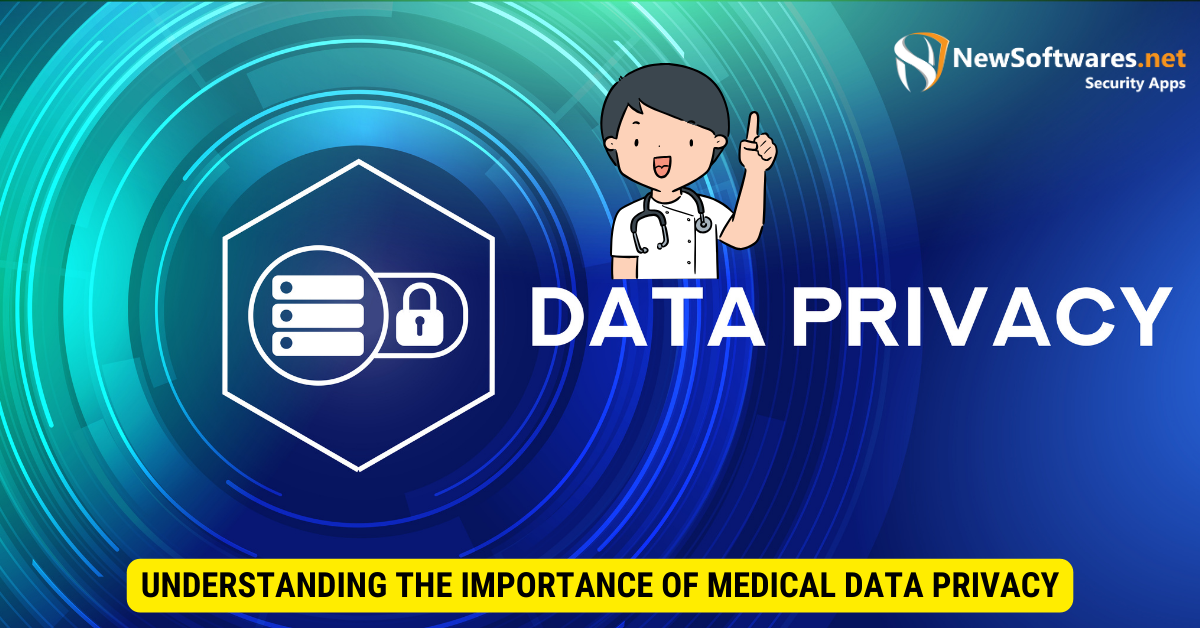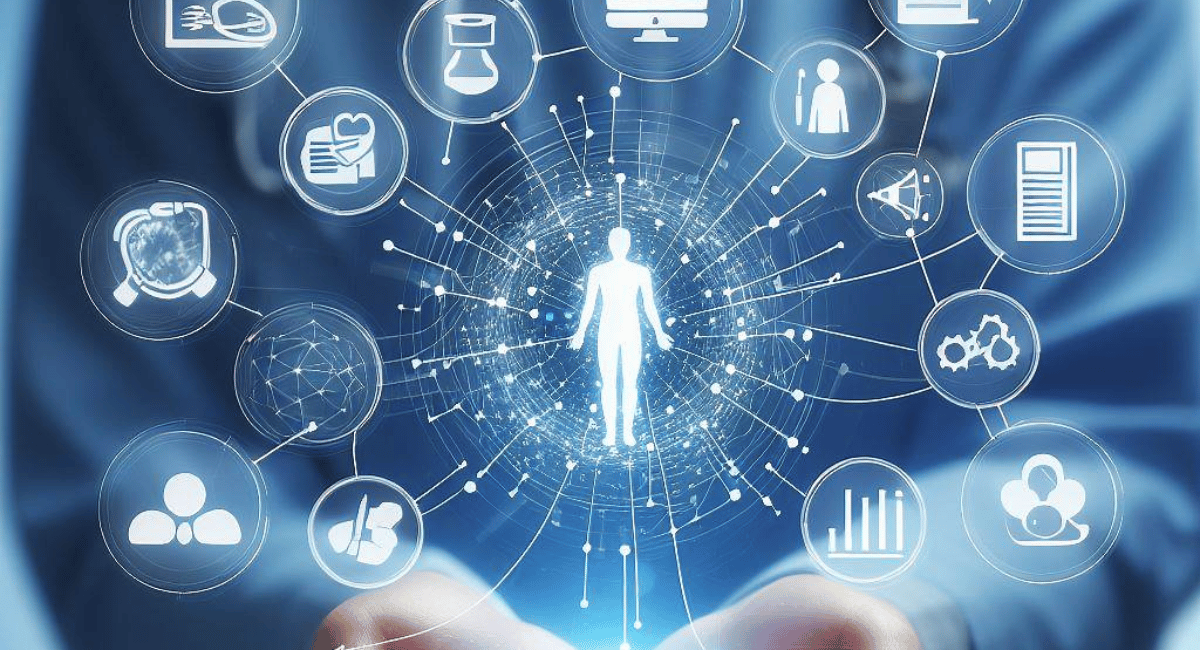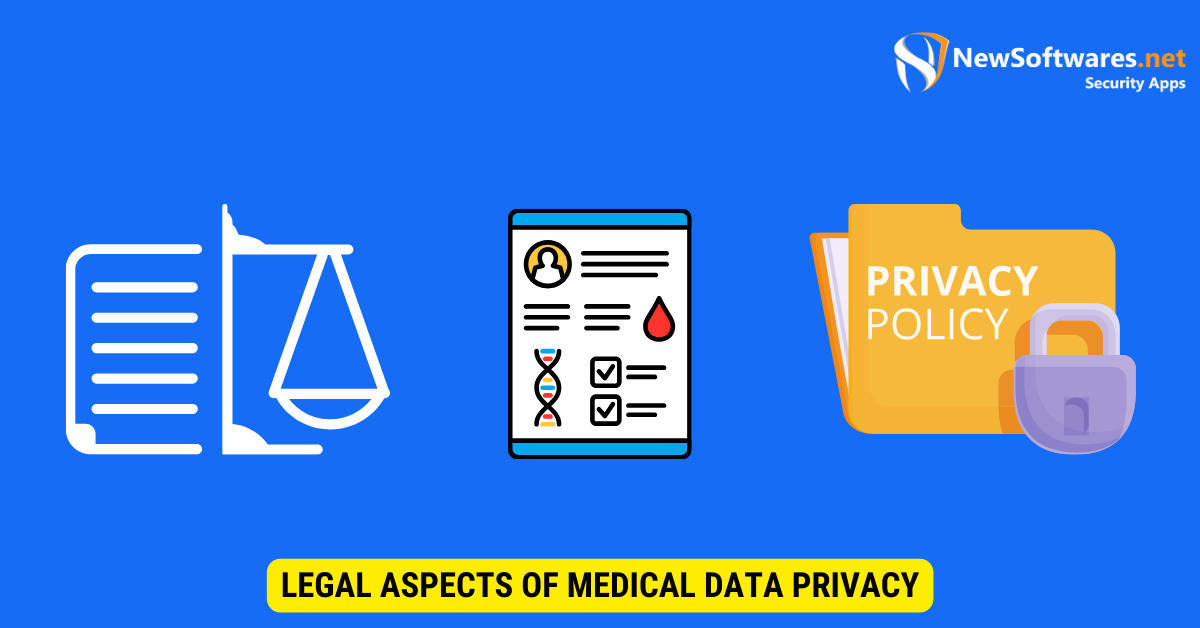Growing digitization, data breaches, and misuse have led to increasing concerns about medical data privacy.
In today’s digital age, safeguarding personal information has become a significant concern for individuals and organizations alike. Medical data privacy, in particular, has sparked a growing unease among patients, healthcare providers, and policymakers. Together we will explore the various factors leading to concern about medical data privacy and its implications on modern healthcare systems.
Understanding the Importance of Medical Data Privacy

Before delving into the factors causing concern about medical data privacy, it is crucial to grasp the significance of protecting this sensitive information. Medical data is fundamental in providing appropriate healthcare services, aiding diagnoses, and conducting medical research. It encompasses a wealth of personal information, including patients’ medical histories, genetic data, treatment plans, and lab results.
The availability of comprehensive medical data facilitates accurate diagnoses and personalized treatments, leading to improved patient outcomes. However, this abundance of personal information also raises concerns about privacy and potential misuse.
The Role of Medical Data in Healthcare

Medical data is the foundation for evidence-based medicine, enabling healthcare professionals to make informed decisions. Researchers can identify patterns, risk factors, and treatment effectiveness by analyzing large datasets, ultimately advancing medical knowledge.
Moreover, medical data allows for continuous monitoring of patients’ health, ensuring timely interventions when necessary. It aids in managing chronic diseases, tracking medication adherence, and detecting potentially life-threatening conditions.
Why Privacy Matters in Medical Data
Privacy concerns arise from the inherent vulnerability of medical data. This information is deeply personal, encompassing details that individuals may prefer to keep confidential. The fear of unauthorized access, identity theft, or stigmatization due to a medical condition can erode trust in the healthcare system, deterring individuals from seeking necessary care.
Additionally, privacy breaches can lead to employment, insurance, or social discrimination. As medical data contains intimate details about an individual’s health, unauthorized access could result in detrimental consequences.
Furthermore, the importance of medical data privacy extends beyond individual concerns. It also has implications for public health and research. When individuals are confident that their medical data is protected, they are more likely to participate in research studies. This participation is crucial for advancing medical knowledge, developing new treatments, and improving healthcare outcomes for everyone.
In recent years, technological advancement has brought benefits and challenges to medical data privacy. Electronic health records (EHRs) have made it easier for healthcare workers to access and share patient information, leading to more coordinated and efficient care. However, this convenience also introduces potential vulnerabilities, as EHRs can be susceptible to hacking and unauthorized access.
Protecting medical data privacy involves executing robust security measures, such as encoding, access controls, and regular audits. Additionally, healthcare organizations and professionals must adhere to strict privacy regulations, such as the Health Insurance Movability and Accountability Act (HIPAA) in the United States, to ensure the confidentiality of patient information.
As technology evolves, so do the challenges in maintaining medical data privacy. The rise of wearable devices, telemedicine, and health apps further complicates the landscape, as these technologies collect and transmit personal health data. Striking a balance between innovation and privacy protection is crucial to harnessing the benefits of these advancements while safeguarding patient information.
In conclusion, understanding the importance of medical data privacy is essential in today’s digital age. Protecting sensitive information preserves individuals’ rights and trust in the healthcare system and enables medical research and advancements that benefit society. By prioritizing privacy and implementing robust security measures, we can ensure that medical data remains confidential and secure.
Technological Advances and Medical Data Privacy
The digital era has revolutionized the healthcare industry, offering numerous benefits in terms of accessibility and efficiency. However, the widespread reliance on interconnected information systems has heightened concerns about medical data privacy.
The Impact of Digitalization on Medical Data
Digitalizing medical records has facilitated seamless storage, accessibility, and transfer of information among healthcare providers. Electronic Health Records (EHRs) offer advantages such as instant data availability, elimination of paper-based errors, and enhanced coordination among caregivers.
Moreover, digitizing medical data has opened up new opportunities for research and analysis. With large datasets, researchers can now classify patterns and trends that were previously difficult to detect. This has led to significant advancements in medical knowledge and the development of more effective treatments.
Nevertheless, the digitization of medical data introduces new vulnerabilities. Cybercriminals target healthcare systems due to the high value of medical data on the black market. This increases the risk of data breaches, compromising patient confidentiality and leaving healthcare organizations vulnerable to legal and financial repercussions.
To address these concerns, healthcare organizations are implementing robust security measures. This includes encryption of data, regular security audits, and staff training on data protection best practices. Additionally, strict access controls are implemented to confirm that only authorized personnel can access sensitive medical information.
Risks Associated with Electronic Health Records
While EHRs improve overall care coordination, there are inherent risks associated with their use. Technical malfunctions, software vulnerabilities, and lack of standardization contribute to potential data breaches. The risk amplifies when considering the multiple access points to medical data, including healthcare providers, administrative staff, and third-party vendors.
Moreover, the interoperability of EHR systems raises concerns about unauthorized data sharing among healthcare entities. Patients worry that their medical data might be disseminated without explicit consent, making them vulnerable to privacy infringements.
However, it is important to note that healthcare organizations are continuously working to address these risks. They are investing in advanced cybersecurity technologies and protocols to protect patient data. Additionally, regulatory bodies are implementing stricter guidelines and regulations to hold healthcare providers accountable for maintaining the privacy and security of medical records.
Furthermore, the benefits of EHRs extend beyond individual patient care. These digital records allow for population health management, enabling healthcare providers to identify and address public health issues on a larger scale. Researchers and policymakers can make informed decisions to improve healthcare outcomes for entire communities by analyzing aggregated and anonymized data.
In conclusion, while technological advances have revolutionized the healthcare industry, protecting medical data privacy remains a critical concern. Healthcare organizations and regulatory bodies must continue to collaborate and invest in robust security measures to confirm the confidentiality and integrity of patient information. By conspicuous the right balance between innovation and privacy, we can fully harness the potential of digitalization to improve healthcare outcomes for all.
Legal Aspects of Medical Data Privacy

Recognizing the growing concerns surrounding medical data privacy, governing bodies have implemented laws and regulations to protect patient confidentiality.
Health Information Privacy Laws
In many countries, legislation exists to safeguard the privacy of medical data. For example, the Health Insurance Portability and Accountability Act (HIPAA) in the United States sets forth standards for protecting and disclosing individuals’ health information.
Such laws mandate healthcare organizations to implement security measures, train staff in data protection practices, and inform patients about their privacy rights. Failure to conform can result in severe penalties, highlighting the importance of medical data privacy.
Legal Consequences of Medical Data Breaches
As medical data breaches become more prevalent, legal consequences have gained attention. Healthcare providers and institutions failing to protect patient information face potential lawsuits, reputational damage, and significant financial losses.
Moreover, healthcare professionals may face ethical and legal repercussions for inappropriately accessing or sharing medical data. The responsibility to ensure patient confidentiality extends to all individuals involved in the healthcare process.
The Human Factor in Medical Data Privacy
While technological advancements and legal frameworks contribute to medical data privacy, the human factor also plays a crucial role in upholding confidentiality.
Medical Staff and Data Privacy
Healthcare professionals handle and access medical data daily, making them integral to maintaining privacy. Strict protocols and training regarding data security are necessary to ensure healthcare professionals understand the importance of patient secrecy and the potential consequences of privacy breaches.
Additionally, implementing access controls, such as requiring strong passwords, regularly updating systems, and restricting access to sensitive information, can significantly reduce the risk of human error or intentional misuse of medical data.
Patient Awareness and Concerns
Patients must also actively participate in protecting their medical data. Being aware of their rights and responsibilities regarding data privacy empowers individuals to make informed decisions and demand transparency from healthcare providers.
Furthermore, patient education regarding potential risks, such as phishing scams and fraudulent healthcare services, can help individuals identify and mitigate threats to their medical data privacy.
Future Perspectives on Medical Data Privacy
The future of medical data privacy lies in innovative solutions and robust policies that address evolving challenges.
Innovations for Enhancing Medical Data Security
Technological advances, such as blockchain and encryption algorithms, promise to enhance medical data security. These technologies provide decentralized, tamper-proof systems that safeguard patient information while maintaining interoperability among healthcare providers.
Furthermore, integrating artificial intelligence (AI) can strengthen privacy measures by automatically detecting and flagging potential breaches, ensuring timely responses.
The Role of Policy in Protecting Medical Data
Policy frameworks must adapt to rapidly evolving healthcare technologies and the corresponding risks to medical data privacy. Stricter regulations, comprehensive data breach response plans, and continued investment in cybersecurity infrastructure are essential to protecting patient information.
Collaboration between policymakers, healthcare professionals, and patients is crucial to creating a balanced environment that respects patient privacy while harnessing the benefits of medical data for improved healthcare outcomes.
Key Takeaways
- The rise of electronic medical records (EMR) and digitization.
- Increased incidents of data breaches.
- Unauthorized sharing and selling of medical data.
- The potential misuse of data by insurance and pharmaceutical companies.
- The sensitivity and personal nature of medical data can lead to stigmatization.
FAQs
Why is medical data considered sensitive?
Because it contains personal health histories, conditions, treatments, and other intimate information.
Who might misuse medical data?
Insurance companies, unauthorized individuals, or entities for profit, malicious actors.
How can I protect my medical data?
Ensure you understand privacy policies, question unnecessary data collection, and maintain strict data-sharing policies with healthcare providers.
Are electronic medical records less secure?
Not necessarily, but their digital nature can make them targets for cyberattacks.
Can medical data breaches affect my insurance?
Potentially, if misused, it can influence insurance decisions.
Conclusion
In conclusion, several factors contribute to the growing concern about medical data privacy. The significance of protecting this sensitive information cannot be understated, as it affects patient trust, healthcare quality, and individuals’ well-being. Technological advances, legal frameworks, and human engagement are pivotal in safeguarding medical data privacy. Looking ahead, innovative solutions and robust policies will be essential for securing patient information and forging a future where medical data privacy is firmly upheld.
